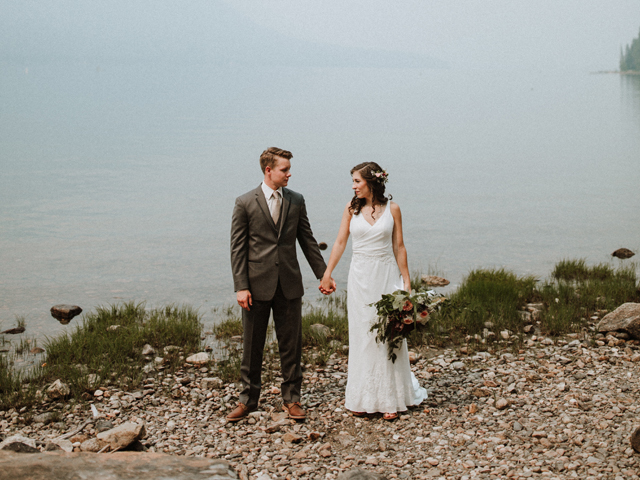Questions to Ask Before You Get Married

The Questions You Should Be Asking Your Partner Before You Get Married
The marriage rate is Australia is steadily increasing. But with more people choosing to tie the knot – how can you ensure you and your partner are set for success long after the honeymoon period? Clinton believes it's all about asking the right questions before you get married.
Beyond the 'big ticket' questions like "do you want children?" and "what faith do we raise our family?" Asking the right questions up front can help couples to:
Be clear about their expectations
Resolve issues before they get married
Know their relationship strengths and challenges
Make the big decisions about their future together
Interview with Clinton Power, relationship therapist and founder of Clinton Power + Associates
Clinton Power is a relationship therapist in private practice in Sydney, Australia. In 2003 he founded Clinton Power + Associates to help singles and couples move out of relationship pain. Clinton regularly comments in the media on issues of relationships and has appeared on Channel 7, The Sydney Morning Herald, and ABC Radio.
Clinton's book, 31 Days to Build a Better Relationship has been downloaded over 5,000 times, has over 80% 5-star reviews, and is available for Kindle on Amazon or through his website. Take Clinton's quiz to find out how well you know your partner at Clinton Power + Associates.
 Question: What questions do you suggest we ask our partner before getting married?
Question: What questions do you suggest we ask our partner before getting married?
Clinton Power: If you're considering getting married, most people know the obvious questions to ask each other such as, "do you want kids?" or "what faith (if any) do we want for our children?"
However, other questions can be valuable for you to explore before you tie the knot. Some questions you might want to consider include:
Where do you want to live and raise a family?
Can we discuss sex openly and honestly?
Do you believe in monogamy? If so, what's your definition of monogamy?
How will we arrange our finances (joint, separate, or both)?
Will we share any debts we bring into the relationship?
How do we feel about each other's families?
How can we support each other if our individual life goals change over time?
How would we deal with changes in our relationship once a baby comes along?
What would we do if one of us becomes ill or disabled?
Question: How do these questions resolve issues before they arise, after marriage?
Clinton Power: In the early part of your relationship, it's easy to assume the person you love is very similar to you. This stage of a relationship is often called the 'honeymoon stage,' and for a good reason. It's a time when you see your partner through rose-tinted glasses. You unconsciously ignore their faults, flaws, and annoying habits.
When you fall in love, your brain produces feel-good hormones that flood your mind, helping you feel euphoric and on top of the world. You can't see the entire, complex picture of your partner in this early stage of your relationship.
As your relationship develops, it's essential for you to check out any assumptions you're making about your partner. These questions are valuable in helping you understand who your partner is and how they see the world.
And most importantly, you can also learn if there are any 'deal breakers.' A deal breaker means the issue is non-negotiable and there can be no immediate resolution. For example, if you want kids and your partner doesn't, this may be a deal breaker and may mean you don't want to commit to marriage or continue in the relationship.
Question: What types of relationship strengths and challenges should we be on alert for?
Clinton Power: We all do well when the sun is shining, and life is going well, but when you're wet, cold, hungry, or tired, it can be revealing to see how your partner deals with stress.
Pay attention to how your partner copes in stressful situations. How your partner manages his emotions is an indicator of how well he can keep himself calm and steady under pressure. If he does well, it's strength, but if he comes undone or goes into fits of anger or rage, it could be a warning sign he is challenged in this area.
Also, notice how well your partner can do empathy. Can he put himself in your shoes and imagine what it's like for you, particularly when you're upset? Good empathy skills are a sign of emotional intelligence and can help you resolve differences and conflict quicker and more effectively.
Clinton Power: When you experience conflict in your relationship, work to resolve and repair the disagreement as quickly as possible. If you leave conflict unresolved for long periods of time, it can have a destructive effect on your relationship harmony.
The healthiest couples still have conflict from time to time, but they repair quickly and get their relationship back on track. Quickly resolving disagreements strengthens your relationship in the long run.
Question: Is there a magic length of time we should be with our partner before marriage?
Clinton Power: There's no 'magic length of time' to be with your partner before marriage, but it's important to know it does take a decent amount of time to get to know someone truly.
Rushing to the altar after only knowing your partner for a couple of months may not be enough time to find out what your differences are and how you deal with life's challenges as a couple.
The honeymoon stage of a relationship can last anywhere between 6-18 months, so it may be wise to know someone for a more extended period, so you can get to know their annoying habits that irritate you, once the warm glow of falling in love has diminished.
 Question: Can you tell us about your pre-marriage program?
Question: Can you tell us about your pre-marriage program? Clinton Power: The Prepare-Enrich pre-marriage program is a customised couple assessment completed online that identifies your strengths and growth areas as a couple. It's one of the most widely used programs for premarital counselling and premarital education in the world today. The program has helped over 1 million couples.
After you complete the online assessments, I provide you and your fiancé in-person feedback sessions to help you learn more about each other, improve your communication skills, and develop your overall relationship.
Couples that have solid relationship and communication skills tend to have longer-lasting marriages, so the Prepare-Enrich program is an excellent investment in your future.
Clinton Power: Make time to talk to each other every week. Have specific 'problem-free time' where you make a date to hang out, go for a walk in the park, or go to your favourite cafe or restaurant. During this time don't talk about any problems or be negative. This time is for you to enjoy each other's company.
Then make another time each week where you can discuss any potential issues. Most couples don't address problems early on, so having a regular time to connect and raise potential issues allows you to nip any problems in the bud before they get bigger and more problematic to resolve.
Interview by Brooke Hunter
https://clintonpower.com.au/
Photo by Nathan Dumlao & Benjaminrobyn Jespersen on Unsplash
MORE



